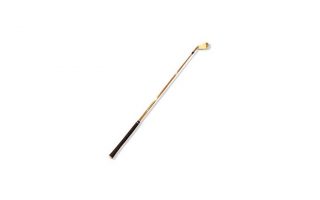London Gold Market Report
by Adrian Ash
Mon, 15 Aug. 2011
Gold Demand “Strong on Dips” as Confidence in Currencies “Goes Down the Drain” 40 Years After Gold Standard’s End
WHOLESALE PRICES to buy gold held above $1730 in London trade Monday morning – the 40th anniversary of US president Richard Nixon “closing the gold window” and officially ending the $35-per-ounce Gold Exchange Standard.
Trading nearly 4.7% below last week’s new all-time high of $1815, the price to buy gold stood 50 times higher from the official US Dollar exchange rate of 15 August 1971.
Crude oil has risen nearly 24 times over since then, while US consumer prices (on the official measure) have risen 5-fold.
The S&P 500 stock market index has risen a little over 12-fold since August 1971.
“The metals had a fairly tamed start to the week,” says a note from Mitsui’s Hong Kong office on the $20-per-ounce overnight fall in the gold price.
“That provided a good opportunity to Chinese [traders], who bought either to establish long positions or to sell against Shanghai [as it] showed high premium.”
Prices to buy gold on the Tokyo wholesale market also rose versus the London benchmark, cutting their discount to 75c per ounce as prices fell – the lowest since Dec. 2010 according to Reuters.
“We haven’t seen much scrap and…are getting good physical demand from Indonesia and Thailand,” it quotes a Singapore dealer today.
Anecdotal reports quoted by the newswire on Friday claimed that scrap gold supplies – sales by the general public of unwanted or broken jewelry – have been drying up in New York, Mexico City and Chennai, India despite this month’s 11% jump in the gold price.
“While there are decent amounts of scrap gold coming to market from Asia, this is being outweighed by physical buying,” says today’s note from Standard Bank in London.
“Buying should increase on price pull-backs as we head into high seasonal demand” from Indian households ahead of the Diwali festival in late October.
Tokyo and other Asian stock markets meantime rose sharply this morning after new data showed Japan’s economy shrinking less quickly than analysts forecast after March’s tsunami and nuclear crisis.
European stock markets also rose, extending their two-day rally from the summer’s 25% plunge in French and German equities.
“There won’t be a collectivization of debt or unlimited assistance,” said German finance minister Wolfgang Schäuble in today’s edition of Der Spiegel, denying the joint-government bond solution to the Euro debt crisis set for discussion this week by Chancellor Angela Merkel and her French counterpart, Nicolas Sarkozy.
“Eurobonds would mean that everybody shares the same interest burden which would be a punishment for [fiscally] prudent nations,” added Berlion’s economic minister Philipp Roesler today, quoted by the DAPD news agency.
“Confidence in our currencies, policy makers and central banks is going down the drain,” says Swiss asset manager Felix Zulauf in the latest edition of Barron’s magazine.
“That will be reflected in a rising gold price.
“I have long said this isn’t an environment for investing in stocks. Hold cash in the form of short- to medium-term Treasuries. Own a lot of gold, and don’t have debt.”
Desperate to suppress the surging Swiss Franc against the Euro, the Swiss National Bank injected cash equal to 20% of the country’s annual economic output into the banking sector last week, reports the Financial Times‘ Gillian Tett today.
As a result, “Implied Swiss interest rates plunged into negative territory,” Tett writes. “If you want to lend Swiss Francs or make a deposit in the next year, you must pay for the privilege.
“Call it Alice in Wonderland economics.”
Analysts meantime continued on Monday to guess at the size of last week’s intervention by the European Central Bank in the Italian and Spanish bond markets, with Gary Jenkins of Evolution Securities pegging the ECB’s bond buying between €10 billion and €15bn.
“Spain and Italy between them are expected to come to the market for over €100bn of medium to long term funding for the rest of this year,” Jenkins adds in a note, “which could mean official support for the markets may have to be substantial.”
Adrian Ash
Gold price chart, no delay | Buy gold online at live prices
Formerly City correspondent for The Daily Reckoning in London and head of editorial at the UK’s leading financial advisory for private investors, Adrian Ash is head of research at BullionVault – winner of the Queen’s Award for Enterprise Innovation, 2009 and now backed by the World Gold Council market-development and research body – where you can buy gold today vaulted in Zurich on $3 spreads and 0.8% dealing fees.
(c) BullionVault 2011
Please Note: This article is to inform your thinking, not lead it. Only you can decide the best place for your money, and any decision you make will put your money at risk. Information or data included here may have already been overtaken by events – and must be verified elsewhere – should you choose to act on it.













